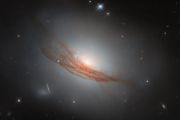
Copernical Team
NASA begins building its first robotic Lunar rover
 NASA's first robotic lunar rover is officially coming together and the team building it is over the Moon.
"I'm super excited...it makes me very proud of all the time and effort the team has invested to get this far," said David Petri, system integration and test lead for the Volatiles Investigating Polar Exploration Rover (VIPER). The team recently began assembling the 1,000-pound rover at
NASA's first robotic lunar rover is officially coming together and the team building it is over the Moon.
"I'm super excited...it makes me very proud of all the time and effort the team has invested to get this far," said David Petri, system integration and test lead for the Volatiles Investigating Polar Exploration Rover (VIPER). The team recently began assembling the 1,000-pound rover at Rocket Lab claims 'mission success' after deploying 2 commercial satellites into orbit
 Rocket Lab confirmed Thursday that it has successfully deployed its payload of two commercial satellites into orbit.
The mission "Stronger Together" carried two Synthetic Aperture Radar commercial satellites from U.S. manufacturer Capella Space into orbit on Thursday evening. The Electron booster lifted off shortly after 6:30 p.m. EST from Launch Complex 2 at the Mid-Atlantic Regional S
Rocket Lab confirmed Thursday that it has successfully deployed its payload of two commercial satellites into orbit.
The mission "Stronger Together" carried two Synthetic Aperture Radar commercial satellites from U.S. manufacturer Capella Space into orbit on Thursday evening. The Electron booster lifted off shortly after 6:30 p.m. EST from Launch Complex 2 at the Mid-Atlantic Regional S Britain backs Rolls Royce effort to develop micro-reactor to power moon base
 Britain is pinning its hopes on nuclear power becoming the energy source that will fuel the next phase of human exploration of the moon, the country's space agency said Friday.
Announcing $3.5 million funding for Roll Royce research into how nuclear could be used to power a manned base on the moon, the U.K. Space Agency said the technology would provide the power for humans to live and
Britain is pinning its hopes on nuclear power becoming the energy source that will fuel the next phase of human exploration of the moon, the country's space agency said Friday.
Announcing $3.5 million funding for Roll Royce research into how nuclear could be used to power a manned base on the moon, the U.K. Space Agency said the technology would provide the power for humans to live and Spirit AeroSystems, Astraius join forces to boost UK launch ambitions
 Spirit AeroSystems, Inc., and Astraius Ltd. announced today a collaboration to enhance future satellite launch capabilities from Prestwick Spaceport. During a visit to the Spaceport by Scottish Government Minister for Business, Trade, Tourism, and Enterprise Ivan McKee, the companies commemorated the announcement with a signing ceremony.
Prestwick Spaceport, a joint partnership between Gla
Spirit AeroSystems, Inc., and Astraius Ltd. announced today a collaboration to enhance future satellite launch capabilities from Prestwick Spaceport. During a visit to the Spaceport by Scottish Government Minister for Business, Trade, Tourism, and Enterprise Ivan McKee, the companies commemorated the announcement with a signing ceremony.
Prestwick Spaceport, a joint partnership between Gla Virgin Orbit suspends operations, in wake of failed orbital launch
 Satellite launch provider Virgin Orbit said Thursday it was suspending operations with immediate effect.
The company confirmed the "company-wide operational pause" to CNBC and the BBC while saying it would provide "an update on go-forward operations in the coming weeks."
Virgin Orbit also reportedly told staff that 600 employees, nearly all of the company's workforce, would be fu
Satellite launch provider Virgin Orbit said Thursday it was suspending operations with immediate effect.
The company confirmed the "company-wide operational pause" to CNBC and the BBC while saying it would provide "an update on go-forward operations in the coming weeks."
Virgin Orbit also reportedly told staff that 600 employees, nearly all of the company's workforce, would be fu Earth from Space: Okavango Delta, Botswana
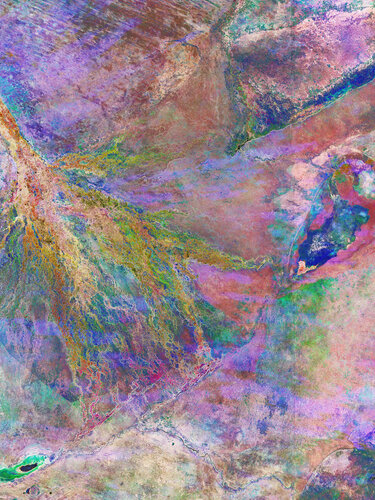 Image:
Botswana’s Okavango Delta – the world’s largest inland delta – is featured in this multitemporal radar image, captured by the Copernicus Sentinel-1 mission.
Image:
Botswana’s Okavango Delta – the world’s largest inland delta – is featured in this multitemporal radar image, captured by the Copernicus Sentinel-1 mission. Hubble’s neighbourhood watch
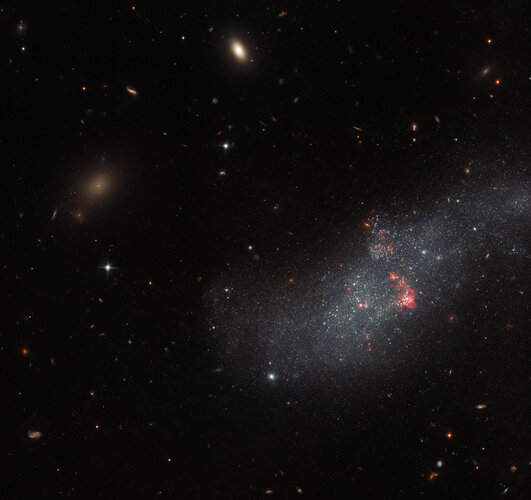 Image:
Hubble’s neighbourhood watch
Image:
Hubble’s neighbourhood watch Week in images: 13-17 March 2023

Week in images: 13-17 March 2023
Discover our week through the lens
How students built Ireland's first satellite
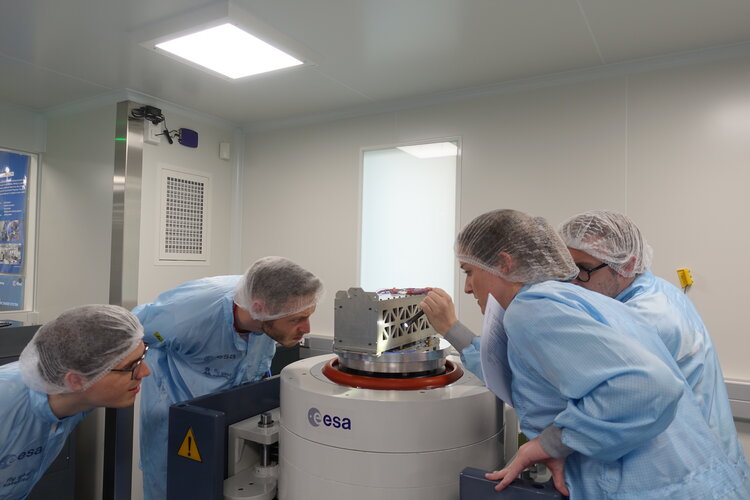
How students built Ireland's first satellite
Satellite powered by 48 AA batteries and a $20 microprocessor shows a low-cost way to reduce space junk
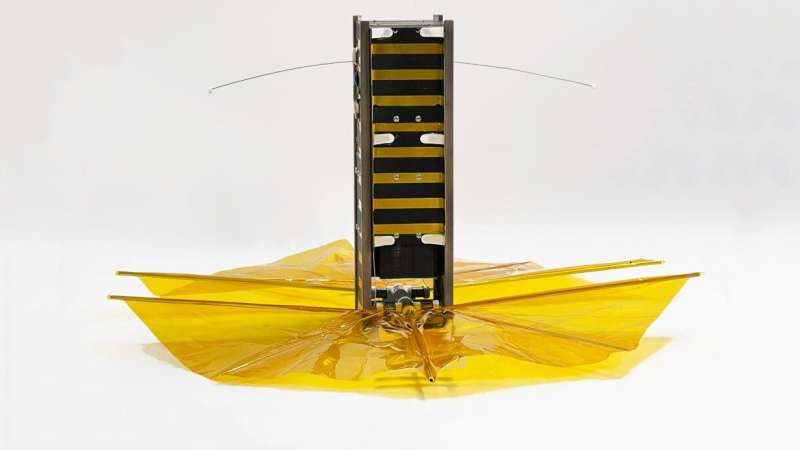
Common sense suggests that space missions can only happen with multimillion-dollar budgets, materials built to withstand the unforgiving conditions beyond Earth's atmosphere, and as a result of work done by highly trained specialists.
But a team of engineering students from Brown University has turned that assumption on its head.
They built a satellite on a shoestring budget and using off-the-shelf supplies available at most hardware stores. They even sent the satellite—which is powered by 48 Energizer AA batteries and a $20 microprocessor popular with robot hobbyists—into space about 10 months ago, hitching a ride on Elon Musk's SpaceX rocket.
































